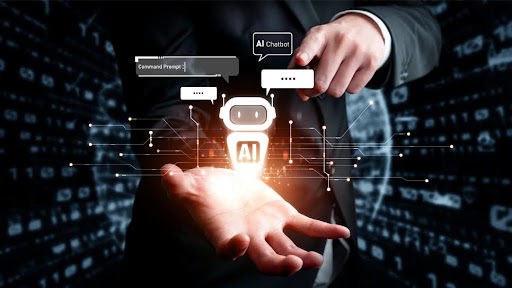Are you all set to know the technological advancement? For that, you have to step into the world of AI (Artificial intelligence), where computers can do tasks with the intellect of humans. AI can do everything, whether visual perception, decision-making, or language translation. Thus, it is quite accurate to say that AI can transform the way of work and living.
With the facility to learn and adapt the changes according to the situation, AI is taking on the duties of humans by being creative and intelligent. In healthcare, transportation, robotics, and many other applications, AI doesn’t have a limit to modernizing this world.
Let’s delve into the world of AI and discover the unpredictable possibilities awaiting.
Table of Contents:
- What Is Artificial Intelligence (AI)?
- From Weak To Strong: Explore The Capabilities of Artificial Intelligence (AI)
- What Are The Four Types Of AI?
- Benefits Of Artificial Intelligence
- Flaws Of Artificial Intelligence
- AI Facts and Figures
- Importance Of AI Literacy
- Top 18 Areas In Which Artificial Intelligence Is Used
- Why Is Artificial Intelligence Used?
- Can Artificial Intelligence compete with humans?
- Ending Note!
What Is Artificial Intelligence (AI)?
AI, in simple words, means using computer systems to do the tasks that need human intellect. The goal of AI is to do various tasks like making decisions, recognizing patterns, and making judgments like a human.
From Weak To Strong: Explore The Capabilities of Artificial Intelligence (AI)
You must have thought about what makes virtual assistants different from humans. So the answer to that is the level of AI system in those virtual systems. For instance, the strong AI is known as AGI, which stands for artificial general intelligence. It represents the peak of AI development. The systems can do any intellectual tasks that are possible for a human. Imagine having such intelligent AI that can solve complex issues and learn the skills like a human. So, the potential of a strong AGI can change the world like never before. On the contrary, weak AI has another name: artificial specific intelligence (ASI) or narrow AI. For instance, this AI is constrained to perform only a specific number of tasks. An example of narrow AI includes personal assistants such as Alexa, which is perfect for answering short queries, setting reminders, and playing music. Nonetheless, it cannot perform all the tasks that strong AI does. Hence, the future will depend on whether you are exploring strong AI to reach the stars or weak AI to get assistance in small tasks.
What Are The Four Types Of AI?
To know AI in-depth, you need to know its types of artificial intelligence. Let’s dig deeper.
- Reactive Machines
This is the oldest form of AI system due to its limited capability. It consists of the human mind's ability to react to various stimuli. Such machines do not entail any memory-based functionality. Thus, they would not be able to perform any task based on previous experience. The learning ability is not present, so they only respond automatically to the combination of contributions. Deep Blue, an IBM system that defeated Garry Kasparov in chess in 1997, is a well-known example of a reactive AI machine. - Limited Memory
Next up, we have limited memory machines that can make decisions based on historical data. Plus, they can learn. Though they have limited memory, all current applications rely on this category of AI. For example, chatbots, self-driving vehicles, and virtual assistants are based on AI-limited memory. - Theory of Mind
The previous two categories of AI are in widespread usage, while the following two are in development. Researchers are advancing the notion of the mind in AI systems to its fullest extent. With this form of AI, they can better comprehend individuals' needs, beliefs, emotions, and mental processes. Best of all, it will better address human requirements. - Self-Aware
Self-aware AI, in simple words, means that machines and robots will perform and think like humans. For instance, the AI system will be thinking creatively and rationally. Also, they will react emotionally and make decisions. So self-aware AI systems will be advanced forms of humans possessing artificial consciousness. A common example of self-aware AI is GPT 3 by Elon Musk’s team.
Benefits Of Artificial Intelligence:
- Enhances productivity and efficiency
- Consistent decision making
- Provides accurate answers to the problems
- Handles massive amounts of data
- Increased accuracy in forecasting and prediction
- Automation in repetitive errands
Flaws Of Artificial Intelligence:
- Economic disruption
- Loss of job opportunities
- Privacy concerns
- Bias and discrimination
- High cost of implementation
- Hard to understand the AI decision-making process
- Legal and ethical issues
- Lack of human intuition and empathy
The popularity of artificial intelligence is reaching sky-high with every passing day. The AI has the capability of programming to learn and think from experiences. The application base of AI is evolved and made its place in almost every business sector.
AI Facts and Figures
- According to the report statistica, the AI software market will reach up to $126 billion by 2025.
- 37% of organizations are using artificial intelligence in some way. According to Gartner, this percentage grew 270 percent over the past four years.
- In a few years, 95% of customer interactions will be driven by artificial intelligence, according to the reports of Servion global solutions.
Importance Of AI Literacy
It is critically essential to know the importance of AI literacy, how it operates, and its capabilities and limitations. Following are the reasons you must give read!
- Job readiness:
With the transformation in the industries and automation tasks, having AI will make the employees work hard to compete. - Better decision-making:
AI will allow individuals to make informed decisions because it helps to enhance strengths and diminishes weaknesses. - Ethical considerations:
AI has a significant impact on social and ethical implications. The implications are highly crucial to understand to use the of AI technology. - Demystifying AI:
AI is complex and seems abstract, but if you are AI literate, it will be easier to understand a wider audience and make it more accessible. - Promoting responsible AI development:
If you are AI literate, individuals will be assisted in developing and using AI ethically, responsibly, and aligned with social and cultural values.
Top 18 Areas In Which Artificial Intelligence Is Used
- AI in ecommerce
- AI in lifestyle
- AI in education
- AI in navigation
- AI in robotics
- AI in human resource
- AI in healthcare
- AI in agriculture
- AI in gaming
- AI in automobiles
- AI in social media
- AI in marketing
- AI in chatbots
- AI in finance
- AI in astronomy
- AI in data security
- AI in travel and transport
- AI in the automotive industry
Why Is Artificial Intelligence Used?
People are utilizing AI to reduce the workload of their daily routines. Thus, automating routine tasks is a smart choice. This indeed saves the employees’ time and enhances the output. In addition, the organization will become more confident and competent with the assistance of AI.
Additionally, businesses these days are willing to automate tasks. And it is now possible with a simple application as automation is more common with technological advancement. For instance, artificial intelligence is most often used in chat portals. You must have seen the welcome message whenever you visit a website. After that, a true conversation usually begins.
Can Artificial Intelligence compete with humans?
AI is overtaking humans quite rapidly in industries where it is extensively used. Nevertheless, humans are still better at performing countless tasks than AI can. For creative tasks, AI cannot compete with a human. For instance, a writer can use AI to write screenplays for any sitcom, though it would be hard to read.
The swift advancement of AI is excelling in the areas like problem-solving, decision-making, and language processing. On the other hand, some writers are using AI writing tools to get inspiration for fiction. Yet it is impossible to hand over all the duties to AI. In fact, AI cannot understand the right meaning of all the words it can read. Plus, it is not able to demonstrate empathy or do critical thinking. So humans still excel at performing tasks that require such talents.
As a result, if you doubt that robots will replace your job, develop such skills to ensure that you are competent enough to secure your job.
Ending Note!
So now you know how AI can revolutionize industries with its many applications and solve intricate issues. Do you approve of the long list of AI applications crafted by Beaconhouse Technology? Or might we have skipped, if any? Then let us know. Until next time!







